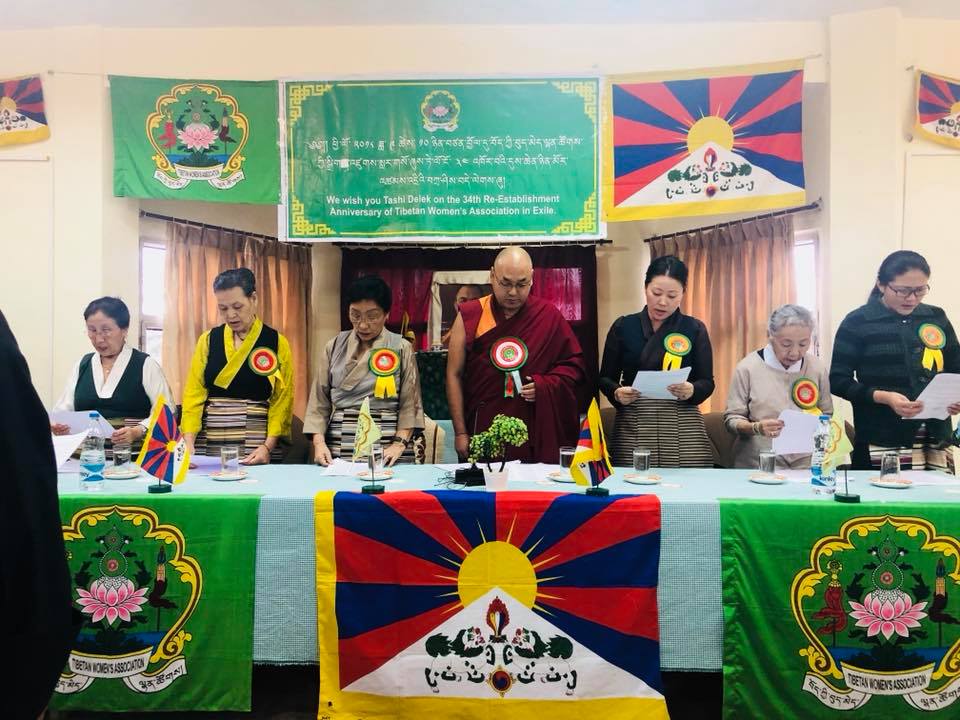Woeser: A Silenced Writer Further Restricted
A beacon of truth casting light on Tibet’s dark history under Chinese tyranny, 40-year-old Woeser authors various kinds of literature, employing her extraordinary talent in Chinese, to praise her Tibetan heritage and correct China’s red interpretation of Tibet’s past, especially the 1966 to 1976 Cultural Revolution. The now internationally-recognized writer has attracted diverse readers inside and outside China, and perhaps most alarmingly, the Chinese government, which has taken measures to douse her flame of free expression.
In unequivocal attempts to subdue her already widespread popularity and subversive rhetoric, the Chinese government has banned the Lhasa native’s books, sacked her from her job with the Tibetan Cultural Association in Lhasa, and barred her from international travel. Most recently Woeser’s two blogs, the last legs of her mass outreach, have been shut down, presumably by orders from the Chinese administration, this past summer.
Woeser, born in Lhasa at the outset of Mao Zedong’s Cultural Revolution in 1966, iconizes the new generation of Tibetans born in Chinese-occupied Tibet who leave their mother language on the shelf and learn to read and write in Chinese. Having attended Chinese schools from childhood and eventually graduating from Chengdu’s Southwest Nationalities Institute in Chinese literature, Woeser takes advantage of her expertise in the language to educate Chinese about the Tibetan issue.
Upon graduation in 1990, she worked as a journalist, eventually moving back to Lhasa to join the Tibetan Cultural Association; all the while, she started poetry writing and tapping into her rich Buddhist culture. Woeser also found inspiration from reading works of foreign authors, such as Edward Said, prompting her to dig deeper into Tibet’s past. She discovered vast discrepancies between the “red education” she received in Chinese schools and her clandestine independent research about the Cultural Revolution and China’s inroads into Tibet on the pretense of liberating the country. Woeser’s father, a half-Tibetan-half-Han who once served as an officer of the PLA, confirmed some of her research.
Her mission to retell the story of Tibet had springboarded Woeser into publishing her prose and poetry in order to defend the truth. Her work culminated in Notes on Tibet, which led to her termination at the Tibetan Cultural Association in 2004 because she did not repent for publishing what the Chinese Government’s United Front Office named “political mistakes.”
Woeser turned to online-journalling in the wake of her dismissal and created two weblogs in order to make accessible her writings on Tibet. Short-lived, her blogs “Maroon Map” and “Woeser Blog” were closed last summer without explanation. Suspecting the handiwork of the Chinese government, Woeser explains that she had posted politically sensitive material, including a photo of His Holiness the Dalai Lama accompanied by a poem she composed for the religious leader on his birthday, July 6.
Despite the overt actions by the Chinese government to stifle her voice, the writer vows to continue her campaign against the illegal occupation through her compositions. A determined Woeser states in an interview with Radio Free Asia, “Though my blogs are shut down, they cannot stop my speech and my writing.”


